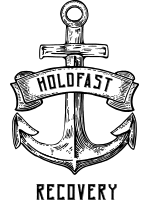
Heroin Rehab in Prescott
Treatment for Heroin Addiction in Arizona
Contact Us | Call Us | Admissions
Heroin is a powerful type of narcotic, also known as an opioid, that is extremely addicting. Once ingested, it quickly enters the brain where it reduces feelings of pain and produces a “rush” of euphoria. Those who misuse, abuse, or become addicted to heroin typically face a number of negative effects but find themselves unable to stop using the drug without professional help.
Our founder, Brendan McDonough, understands what it takes to break the cycle of dependence and addiction because he has been there himself. At our Prescott heroin rehab center, we provide all of the tools you need for successful healing and long-term sobriety.
Continue reading to learn more about our heroin addiction treatment program, or contact us directly at (800) 680-7738 to speak to one of our professional intake counselors.
How Heroin Addiction Starts
No one starts using a drug with the expectation or desire to develop dependence, let alone addiction. Often, heroin use begins as experimentation. It can also occur after an individual is prescribed certain opioid pain relievers, such as Vicodin® or OxyContin®. These prescription medications produce very similar effects to heroin, and the misuse of such drugs can—and frequently does—lead to heroin use.
Often, addiction begins as increased tolerance. This occurs when a person needs more and more of the drug to produce the same feeling of being high. Tolerance often leads to or occurs alongside dependence, which is when a person begins to feel withdrawal symptoms when not using heroin. After dependence comes full-blown addiction, in which a person prioritizes heroin use over other aspects of his or her life and is unable to quit despite the negative consequences.
Heroin Addiction by the Numbers
- According to the National Institute on Drug Abuse, nearly 15,000 people died of heroin-related overdose in 2018 alone, a rate of almost 5 deaths for every 100,000 Americans. More than half of these deaths involved heroin combined with other synthetic narcotics. By comparison, less than 2,000 heroin-related deaths were recorded in 1999.
- In 2018, 2.2% of adults ages 26 or older reported having used heroin at least once in their lives.
- Opiates, mainly heroin, account for roughly 18% of admissions for addiction treatment in the United States.
What Are the Short- & Long-Term Effects of Heroin?
Heroin is commonly used because of the “high” it produces, or an overall sense of euphoria or pleasure frequently described as a “rush.” However, it also causes a number of negative short- and long-term effects.
Some of the short-term effects of heroin include:
- Heaviness in the arms and legs
- Skin flush
- Dry mouth
- Nausea
- Vomiting
- Poor mental functioning/confusion
- Severe itching
- Semi loss of consciousness
When used over a prolonged period of time, heroin can also lead to:
- Difficulty sleeping
- Constipation
- Abdominal cramps
- Collapsed veins (when injected)
- Damaged nasal tissue (when snorted)
- Abscesses
- Liver disease
- Kidney disease
- Heart problems
- Pneumonia and other lung problems
- Depression
- Antisocial behavior
- Sexual dysfunction (men)
- Irregular menstrual cycles (women)
- Brain damage
- Infectious disease (HIV, hepatitis, etc.) from shared needles
Additionally, heroin overdose occurs when a person ingests/uses fatal amounts of the drug, leading to slowed or stopped breathing. This, in turn, causes hypoxia, or a severe decrease in the amount of oxygen reaching the brain, which leads to permanent brain damage, nervous system damage, coma, and death.
Call (800) 680-7738 or contact us online to get started on your recovery today.
Signs of Heroin Abuse & Addiction
Recognizing the signs of heroin abuse and addiction can be notoriously difficult, even when you suspect that your own use has gotten out of control. If you are starting to think about cutting back on your use or have been unable to cut back or quit despite repeated attempts to do so, this is a good indicator that the situation has gone beyond your control. If you find yourself constantly concerned with your next high or obtaining more of the drug, this is another sign that you may need professional treatment.
If you believe someone you love may be struggling with heroin addiction, look for the following signs:
- Unexplained changes in behavior
- Erratic or aggressive behavior
- Social withdrawal
- Track marks on the skin
- Wearing long sleeves/pants in hot weather
- Increased secretiveness
- Lying
- Missing money/valuables
- Loss of employment
- Relationship problems
- Lack of interest in previously enjoyable activities
- Flu-like symptoms (muscle aches, runny nose, vomiting, etc.)
- Depression and anxiety
- Restlessness
- Changes in sleeping patterns (especially insomnia)
- Frequent yawning/fatigue
- Legal problems
These and other symptoms can indicate that a person is on a slippery slope from use to dependence to addiction.
Heroin Withdrawal Symptoms
One of the primary indications that heroin use has transitioned into abuse is the presence of withdrawal symptoms when not using the drug. Heroin withdrawal is notoriously painful, and many people who attempt to stop using the drug are unable to do so due to the immense difficulty of going through withdrawal.
Some of the common heroin withdrawal symptoms include:
- Depression
- Dysphoria
- Bad mood
- Anxiety
- Insomnia
- Irritability
- Restlessness
- Diarrhea
- Runny nose
- Body aches
- Frequent yawning
- Nausea
- Vomiting
Those undergoing withdrawal will often also experience intense cravings and may be unable to prevent relapse.
If you are ready to learn more, call (800) 680-7738 today. We accept most major insurance providers and can assist you in verifying your benefits.

HEAR FROM PAST CLIENTS
Frequently Asked Questions
-
 Do You Treat My Addiction?At Holdfast Recovery, we treat both alcohol addiction and all forms of drug addiction (including co-occurring mental health disorders). We offer an array of programs to target your unique needs.
Do You Treat My Addiction?At Holdfast Recovery, we treat both alcohol addiction and all forms of drug addiction (including co-occurring mental health disorders). We offer an array of programs to target your unique needs. -
 Where Do I Live While In Treatment?While at Holdfast Recovery, you can live under our care at our own housing program or if preferred, you can stay with a family member. We have 24/7 staff that are always here for you.
Where Do I Live While In Treatment?While at Holdfast Recovery, you can live under our care at our own housing program or if preferred, you can stay with a family member. We have 24/7 staff that are always here for you. -
 Will My Insurance Cover This?At Holdfast Recovery, we accept most major insurances and understand how hard the process can be. Fill out our insurance form or give us a call and we will help you along the way.
Will My Insurance Cover This?At Holdfast Recovery, we accept most major insurances and understand how hard the process can be. Fill out our insurance form or give us a call and we will help you along the way. -
 How is Your Program Different?Our program is different in many ways, one of them being our 3-phase approach and how we address addiction and the trauma that lies underneath!
How is Your Program Different?Our program is different in many ways, one of them being our 3-phase approach and how we address addiction and the trauma that lies underneath!






